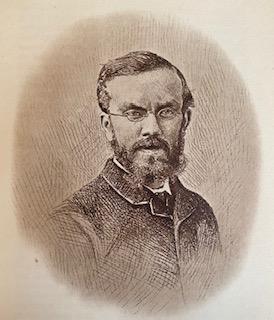
Área de identidad
Tipo de entidad
Forma autorizada del nombre
Forma(s) paralela(s) de nombre
Forma(s) normalizada del nombre, de acuerdo a otras reglas
Otra(s) forma(s) de nombre
Identificadores para instituciones
Área de descripción
Fechas de existencia
Historia
William Alexander Forbes was an English zoologist. He was the son of James Staats Forbes. He studied natural sciences at St John's College, Cambridge, and later taught at Rhodes College.
In 1879 he was appointed prosector to the Zoological Society of London. Forbes lectured on comparative anatomy at Charing Cross Hospital Medical School. As an anatomist he wrote papers on the muscular and voice organs of birds.
On 8 February 1878, Forbes was elected Secretary of the Cambridge Natural History Society. He also edited the book compiling the late Alfred Henry Garrod's scientific papers. The book was published in 1881 along with a memoir of Garrod written by Forbes.
In 1880 Forbes visited the forests of Pernambuco, Brazil, and published an account of his trip in The Ibis in 1881. In 1882 he travelled to West Africa to study the native fauna, starting from the mouth of the Niger delta. He was taken ill shortly after Christmas and died in Shonga.
Forbes is commemorated in the names of the Forbes's blackbird, Anumara forbesi, white-collared kite, Leptodon forbesi, and the Forbes's plover Charadrius forbesi.
Lugares
Estatuto jurídico
Funciones, ocupaciones y actividades
Mandatos/fuentes de autoridad
Estructura/genealogía interna
Contexto general
Área de relaciones
Área de puntos de acceso
Puntos de acceso por materia
Puntos de acceso por lugar
Occupations
Notas
1879-1883